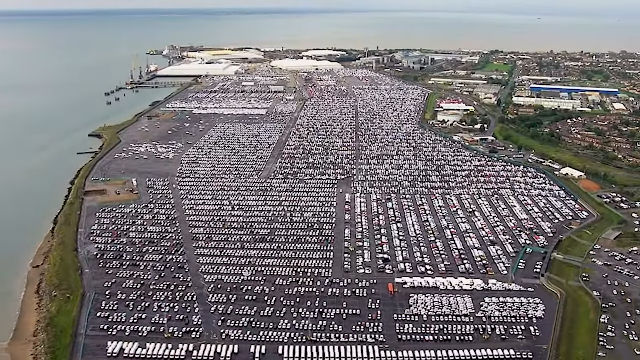Volkswagen's Challenge: Navigating the Electric Revolution in China
The Dawn of Volkswagen's Success in China:
Volkswagen's entry into China in 1983 marked the beginning of a prosperous era, with the company capitalizing on the nation's economic reforms. The partnership with Shanghai Automotive Industry Corporation set the stage for Volkswagen to become a household name in China. As the country's middle class expanded, Volkswagen's sales surged, cementing its position as a market leader and a significant contributor to the company's global profitability.
The Emergence of Chinese EV Manufacturers:
The automotive landscape in China began to change rapidly with the introduction of aggressive EV policies. Generous government incentives and a supportive regulatory framework fueled the rapid ascent of Chinese EV manufacturers. Companies like BYD have leveraged these advantages to innovate and capture a significant share of the market, surpassing Volkswagen in both technology and sales.
Volkswagen's Global Market Struggles:
Volkswagen's challenges are not confined to China. The company has seen a decline in sales worldwide, leading to difficult decisions such as factory closures and pay reductions. The slowdown has also affected Volkswagen's luxury brands, Audi and Porsche, which have struggled to maintain their foothold in the competitive Chinese luxury EV segment.
The Software Conundrum and Volkswagen's Response:
The shift towards electric mobility has underscored Volkswagen's need to excel in software development—a critical component of modern vehicles. Plagued by software delays and recalls, Volkswagen's ID series launch faced significant setbacks. In an effort to address these issues, Volkswagen established Car.Software (formerly Cariad) to bring software development in-house and to standardize vehicle software architecture.
Strategic Partnerships and Technological Innovations:
In a bold move to reclaim its market position, Volkswagen has formed a strategic alliance with Rivian, a leader in electric and autonomous vehicle technology. This partnership aims to integrate cutting-edge software solutions into Volkswagen's future fleet, with a particular focus on luxury brands and the potential for autonomous driving capabilities.
Volkswagen's Path Forward:
Volkswagen's strategy for the future revolves around adapting to the electric revolution and embracing innovation. By forging strategic partnerships, investing in software and autonomous driving technologies, and gaining a deeper understanding of the Chinese market, Volkswagen is positioning itself to navigate the challenges of the modern automotive industry.
Volkswagen's experience in China serves as a microcosm of the broader changes affecting the global automotive industry. As consumer preferences shift towards electric and sustainable transportation, legacy automakers like Volkswagen must evolve to stay relevant. The company's ability to innovate and adapt will be crucial in determining its success in the years to come.











